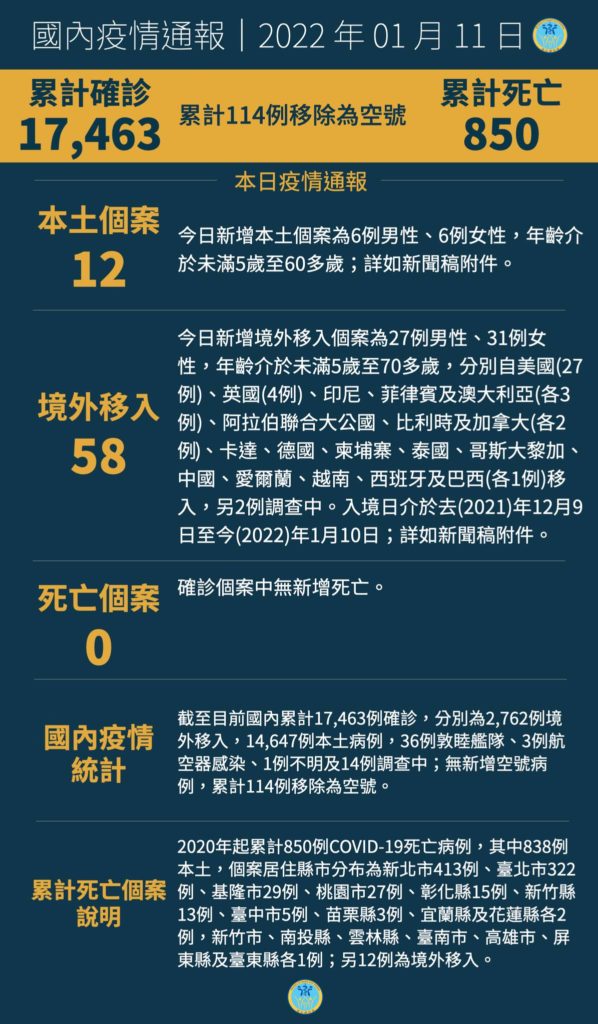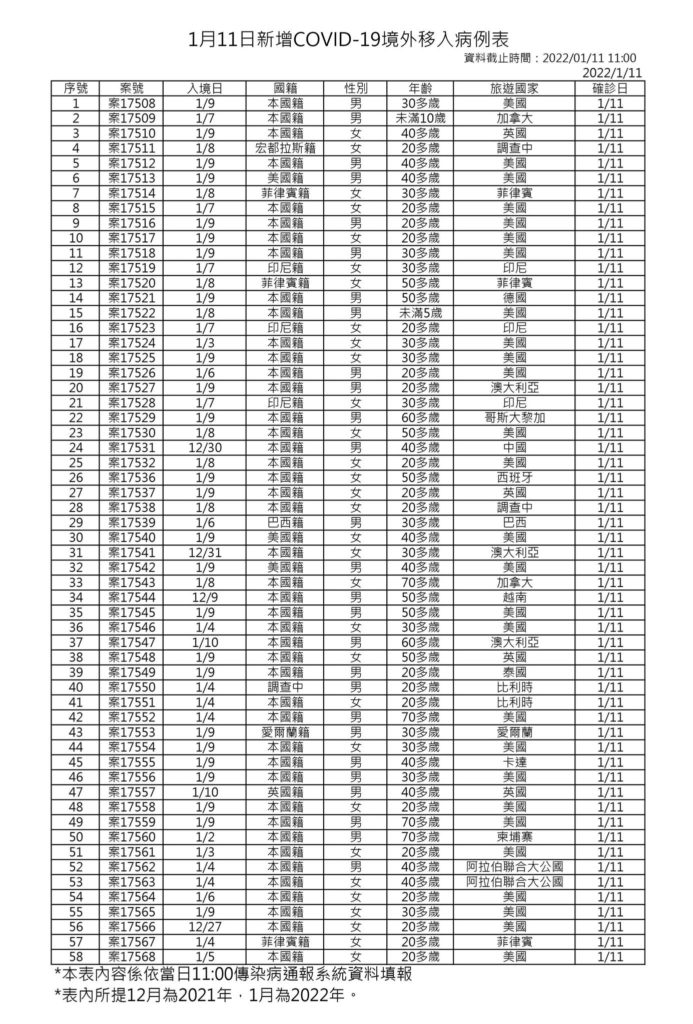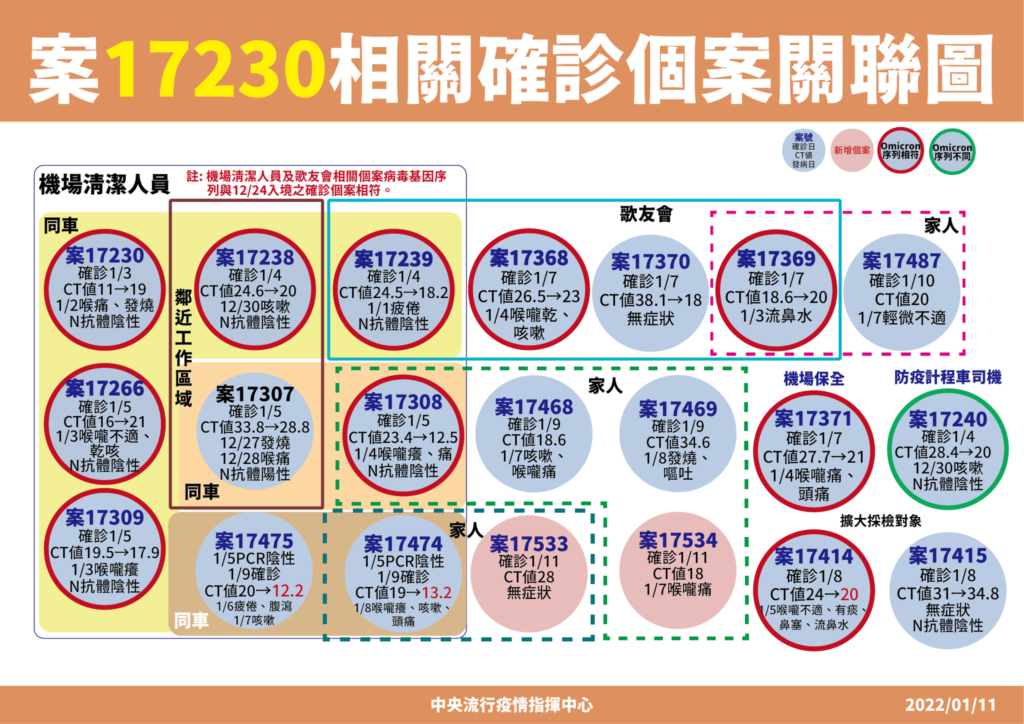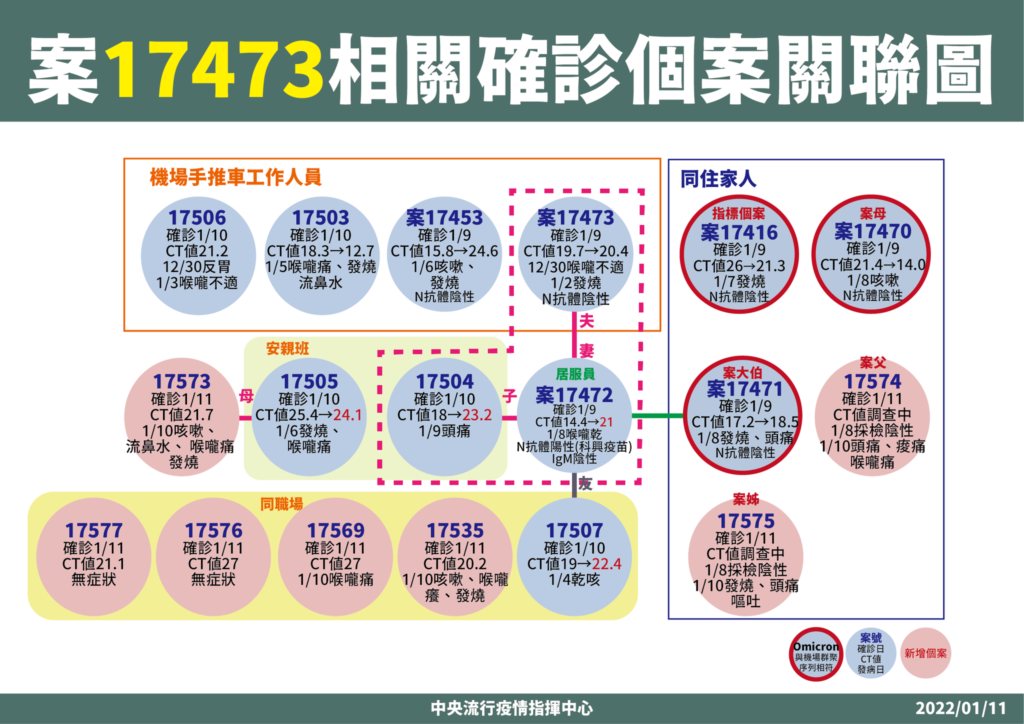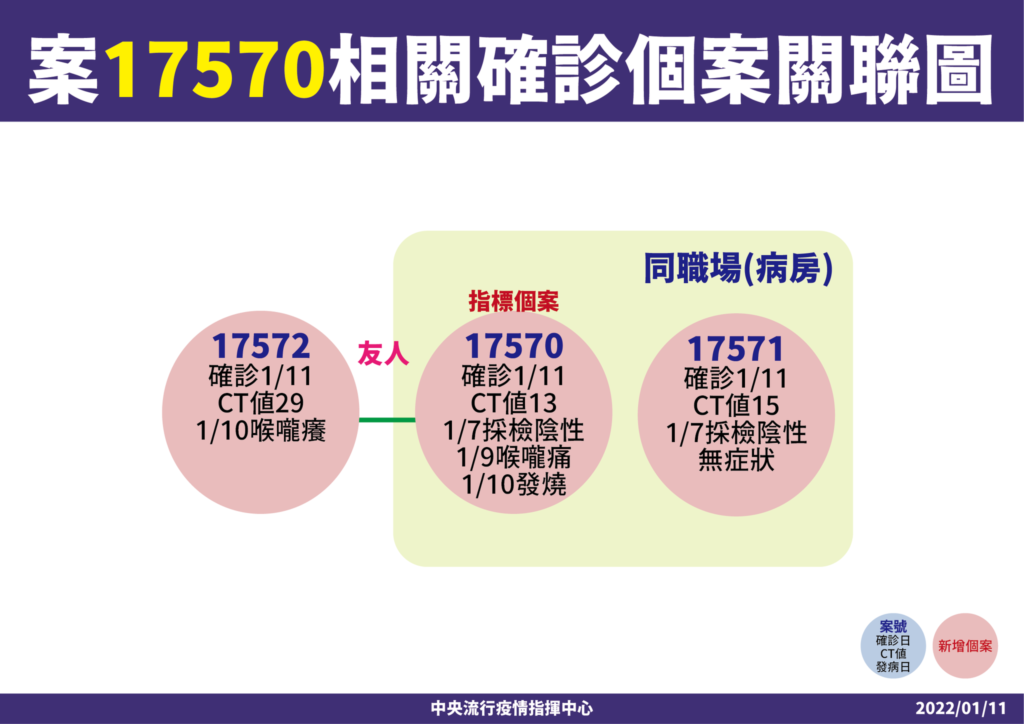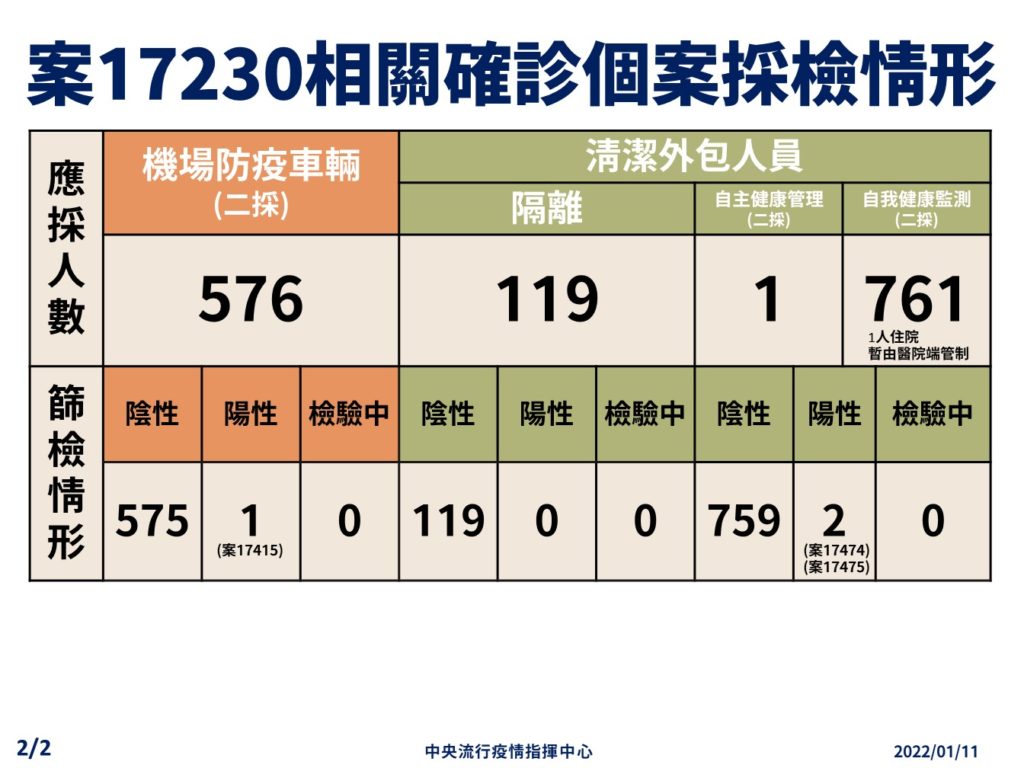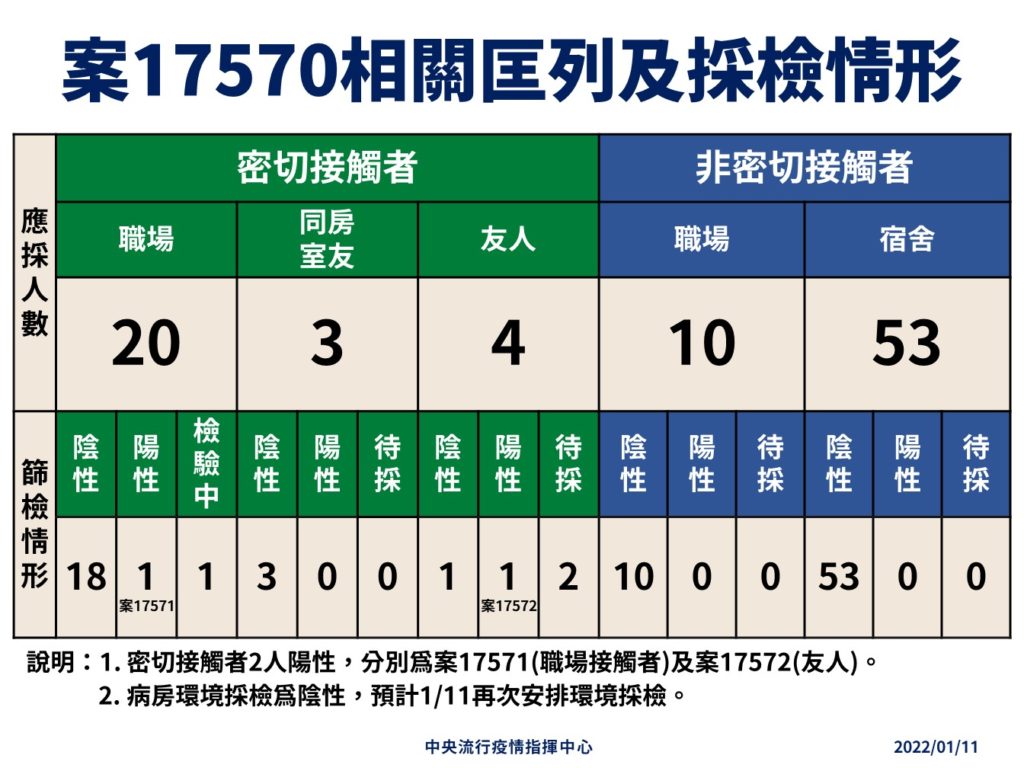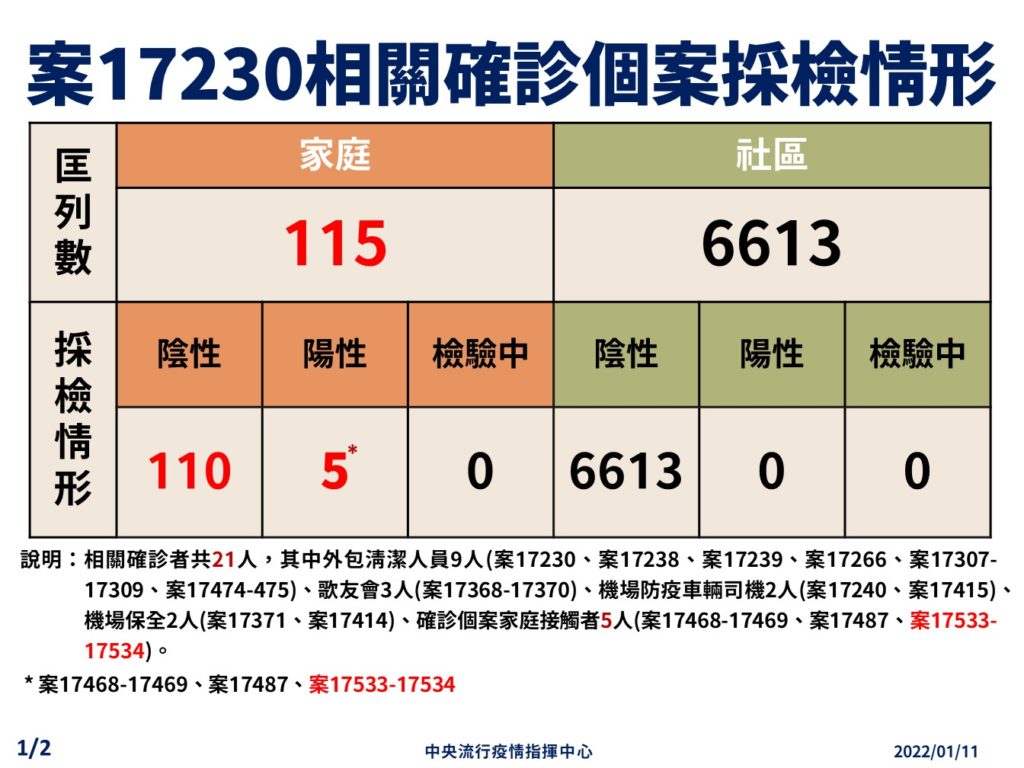by Brian Hioe
語言:
English
Photo Credit: Solomon203/WikiCommons/CC
THE CENTRAL EPIDEMIC Command Center (CECC), which coordinates Taiwan’s response to COVID-19, announced 12 domestic cases today. 58 imported cases were also reported, along with no deaths.
Of particular concern are that four of the cases from today are from an electronics factory in Taoyuan. This occurred due to a previously known case that worked at the Taoyuan International Airport, who transmitted it to her child and husband and friend, who then spread it to four co-workers. The factory has 280 workers, who have all been sent into quarantine, and the factory has halted work.
Infographic of the new cases from today (left) and on the imported cases (right). Photo credit: Ministry of Health and Welfare/Facebook
Three cases of relatives of airport workers, who likely came in contact with COVID-19 at the airport, were confirmed. The mother of a COVID-19 case caught it from her child, who attended the same daycare as the child of a service worker at the Taoyuan International Airport, was also confirmed. Likewise, two nurses at the Zhongxing Branch of the Taipei City Hospital that worked in wards with COVID-19 patients, along with the partner of one of the nurses, was found to be positive for COVID-19.
Taiwan has seen sporadic single-digit cases since January 4th, with a previous high of 11 cases reported on Sunday. This has primarily centered around clusters that broke out among quarantine hotels, with it thought that the more infectious nature of the Omicron variant may be the cause of this. Otherwise, cases have primarily been among individuals linked to Taoyuan International Airport. This includes cleaning workers at the airport, who may have come into contact with COVID-19 among passengers or at airport bathrooms, as well as quarantine taxi drivers.
According to Minister of Health and Welfare Chen Shih-chung, who heads the CECC, the situation with the electronics factory in Taoyuan is stable and effects are expected to be limited. Chen stated at the CECC’s press conference today that neighborhood testing sites have not picked up COVID-19 cases in the community. That being said, Chen previously stated that there has likely been multiple waves of COVID-19 at Taoyuan International Airport, and that the Omicron variant has likely entered into the community. While there were concerns regarding the fact that an airport worker had attended a new year’s karaoke party with over eight hundred attendees, there have not been cases reported in connection to this incident yet.
Contact tracing map for the recent cases. Photo credit: Ministry of Health and Welfare/Facebook
But the cases today take place ahead of concerns about an increased number of cases due to Lunar New Year travel, when a number of individuals are expected to return to Taiwan. The influx of travelers is expected to strain quarantine hotels in Taiwan, resulting in the amendment of quarantine schedules to allow individuals vaccinated fourteen days before their arrival in Taiwan to spend seven days in quarantine facilities and seven days quarantining at home. There are concerns that some people may violate quarantine measures at home.
In response to the outbreak of COVID-19 cases at Taoyuan International Airport, the CECC has introduced new testing measures that require travelers from Australia, Europe, the Middle East, New Zealand, and the United States to be tested with rapid tests on arrival. Within forty minutes, results should be in, with those that test negative sent to quarantine facilities, and those that test positive immediately sent to hospitals. To this extent, testing has been stepped up for individuals in quarantine. Four of the 41 passengers on the first long-haul flight tested under the new regulations were found to be positive, raising concerns, and the overall process took two hours. Quarantine taxi drivers are now no longer allowed to pick up regular passengers.
Testing information for the new cases. Photo credit: Ministry of Health and Welfare/Facebook
Indeed, the number of imported cases is also clearly on the rise in past days, with over fifty cases on some days. Most cases are from the US. As a result, the CECC has delisted African countries originally classified as high-risk in response to the emergence of the Omicron variant. These countries were Botswana, Egypt, Eswatini, Lesotho, Malawi, Mozambique, Namibia, and Nigeria, South Africa, and Zimbabwe.
More broadly, efforts to increase testing in Taoyuan are underway. Measures mandating that masks be worn outside were previously relaxed to allow individuals to take drinks or otherwise remove their masks briefly have now been reversed.
To this extent, the CECC is also hoping to boost vaccination. The number of time after second dose vaccination required for third dose booster shots has now been reduced to twelve weeks. First dose vaccination remains at just over 80%, with vaccination having slowed among some demographics.


